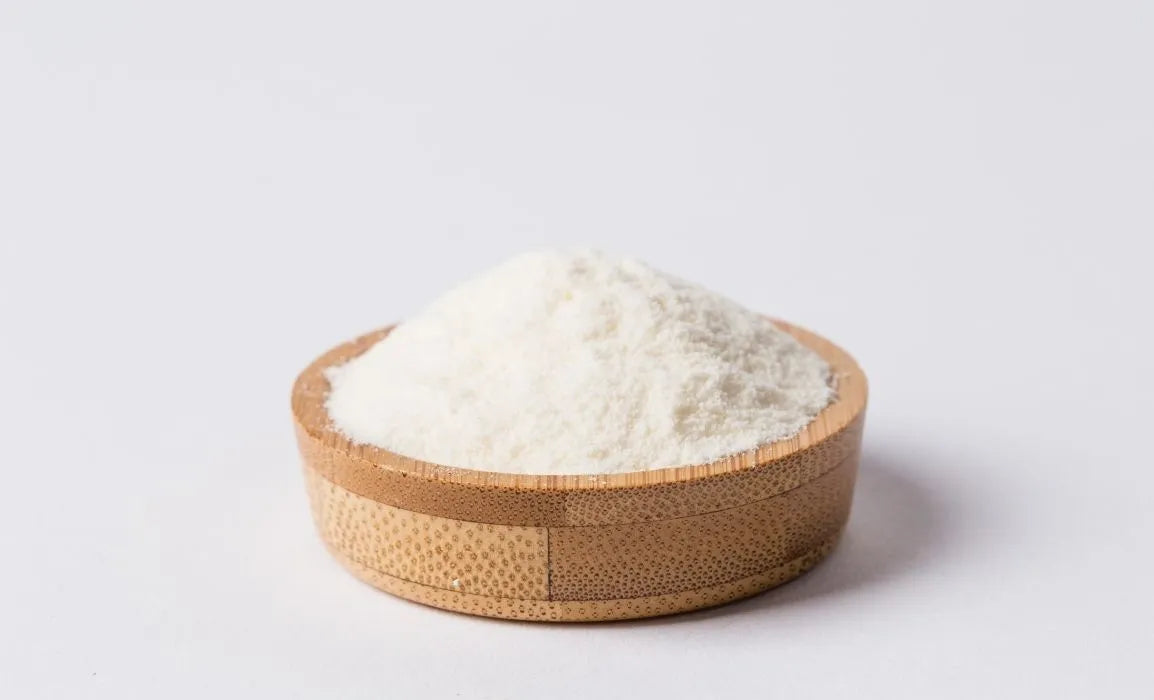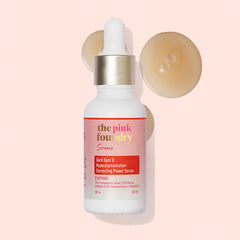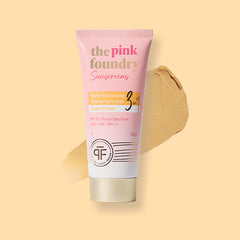Disodium EDTA in Skincare

Introduction
Have you ever glanced at the label of your favourite skincare product and wondered what is disodium EDTA? It might sound a bit like a mouthful, but don't worry-we're here to make it easy to understand. Consider it the unsung hero, though, silently at work to maintain the efficacy and safety of your products.
What is Disodium EDTA?
Disodium EDTA stands for disodium ethylenediaminetetraacetic acid. It is a chelating agent in skincare products, meaning it attaches to metal ions and enhances the efficacy and performance of products.
Although it may not receive much attention, this element is essential to a number of the everyday products you use, including some of your favourite foods and lotions and creams. You are thus at the right spot if you have ever wondered what is disodium EDTA and why it appears in your products. Let’s go through each and every aspect of disodium EDTA.
What Does Disodium EDTA Do in Skincare Products?
In skincare products, disodium EDTA's main job isn't directly linked to making the skin look better. It works as a chelating agent instead. This means that it can attach to any metal ions that might be in the product. Disodium EDTA's advantages for skincare products are as follows:
- Preservation: Okay, so let's say you have this great skincare product. It has all these great ingredients that are said to be beneficial for your face. The catch is that there are metal ions that can break down those important ingredients and make everything go wrong. This is where disodium EDTA comes in handy. So, disodium EDTA not only makes your product last longer, but it also keeps those important ingredients whole so they can work their magic on your skin.
- Stability: In skincare products, certain metal ions can alter the colour or texture. These ions are held together by disodium EDTA, which keeps the product's structure and colour intact.
- Enhancement: Disodium EDTA might help other parts of a product work better if it is put to it. For example, it can help washing agents clean dirt and other impurities better by getting rid of calcium ions.
Disodium EDTA Benefits in Skincare
Although disodium EDTA doesn't directly help the skin, its function as a chelating agent makes skincare routines more effective in other ways like improving product texture, effectiveness, and performance.
Here are its benefits in further detail:
- Maintains Product Effectiveness: Disodium EDTA makes sure that the product's benefits are given throughout its useful time by increasing its shelf life and keeping the stability of its ingredients.
- Improves Texture and Appearance: Disodium EDTA helps keep the product looking good and being easy to use. It stops staining and changes in texture.
- Improves the Performance of Ingredients: Disodium EDTA can improve the performance of other active ingredients in a product by removing metal ions that are getting in the way.
Overall, disodium EDTA benefits skincare products and helps them work well, stay stable and usable.
Is Disodium EDTA Safe to Use in Skincare?
In general, Disodium EDTA is safe to use in cosmetics, according to groups like the FDA. Skincare products generally contain less than 2% of disodium EDTA. This makes sure that it works without causing any major safety issues.
However, the following worries may come up:
- Potential for Irritation: One in a thousand times, disodium EDTA can irritate the skin. This is especially true for people with very sensitive skin. Before you use a new product that has disodium EDTA, always do a patch test.
- Environmental Impact: The waste products that disodium EDTA makes could be bad for the earth. Even though much smaller amounts are used in cosmetics, it is still a good idea to choose brands that care about the environment and promote sustainability.
Alternatives to Disodium EDTA:
Due to concerns about the environment or the demand for "natural" ingredients, some skincare brands are looking into other ways to use disodium EDTA. Notable options are citric acid and natural chelating agents derived from plants like algin. Different options might work in most situations, though.
Making Informed Choices:
If you are worried about disodium EDTA, you can:
- Check product labels: Look for products that do not contain disodium EDTA.
- Research alternative brands: Several brands have skincare products made without disodium EDTA.
- Consult a dermatologist: Always consult with a dermatologist before buying any skin care product and trying on your skin. They can suggest products that are more suitable for your skin type.
Conclusion
In the end, it's up to you whether to use products with disodium EDTA or not. So, know what it's for and what problems it could cause and make smart choices about your skin care practice.
Related Blogs

Skin Minimalism: The Simple Skincare Routine You Need
TABLE OF CONTENTS What is Skin Minimalism? Benefits of Skin Minimalism Best Minimal Skincare Routine Skin...
Continue Reading
Ethyl Ascorbic Acid vs. L Ascorbic Acid: Which Vitamin C Form is Best for Your Skin?
TABLE OF CONTENTS Ethyl Ascorbic Acid vs L Ascorbic Acid: Key Differences Benefits of Each Form of Ascorbic Acid ...
Continue Reading
Best Anti-Aging Ingredients You Should Include in Your Skincare Routine
TABLE OF CONTENTS Best Anti-Ageing Ingredients for Skin How These Ingredients Work How to Use Anti-Ageing Ingredi...
Continue Reading
How Often to Use Salicylic Acid: Finding the Right Frequency for Your Skin
TABLE OF CONTENTS How Often Should I Use Salicylic Acid Serum? How Often to Use Salicylic Acid for Specific Skin Types ...
Continue Reading















